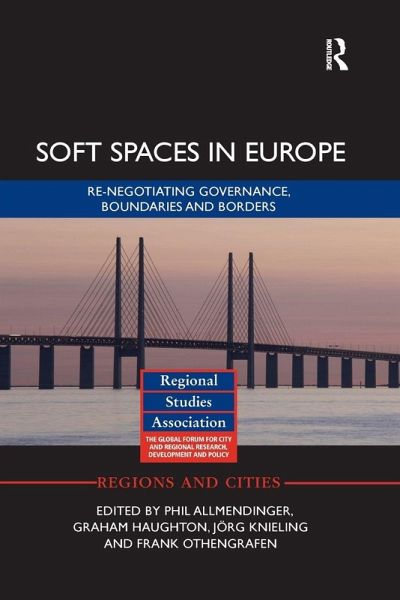
Soft Spaces in Europe
Re-negotiating governance, boundaries and borders
Herausgeber: Allmendinger, Phil; Knieling, Jörg; Haughton, Graham
Versandkostenfrei!
Versandfertig in 1-2 Wochen
62,99 €
inkl. MwSt.

PAYBACK Punkte
31 °P sammeln!
The past thirty years have seen a proliferation of new forms of territorial governance that have come to co-exist with, and complement, formal territorial spaces of government. These governance experiments have resulted in the creation of soft spaces, new geographies with blurred boundaries that eschew existing political-territorial boundaries of elected tiers of government. This book provides a deeper understanding of space and place, territorial governance and network governance.




